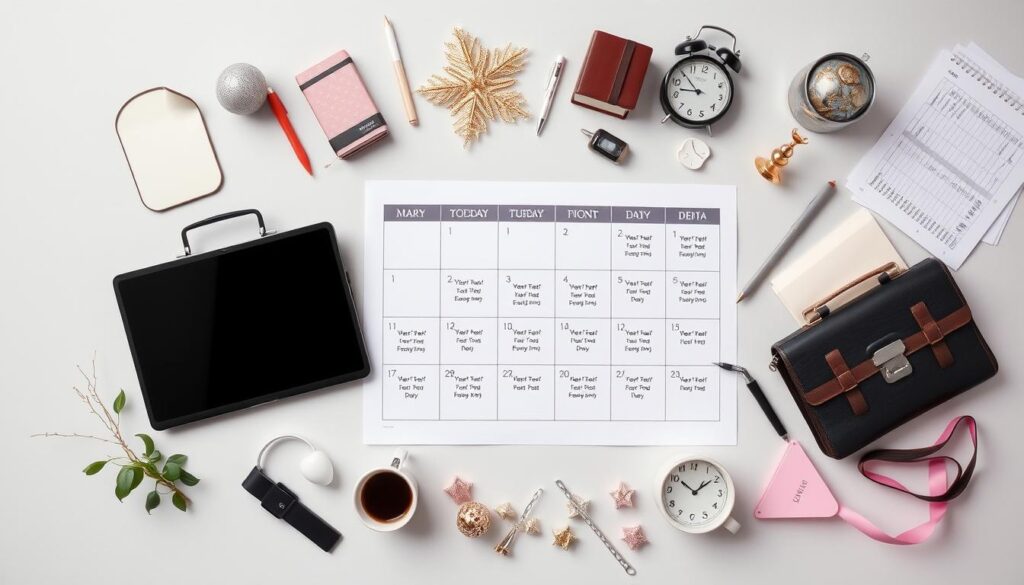Water fasting is becoming more popular for weight loss and improving health. It means drinking only water for 24 to 72 hours. It can help with hormone balance, ketosis, and reducing stress and inflammation.
Before starting a water fast, talk to a healthcare professional. This is especially important if you have health issues. Some people, like kids, teens, and those over 75, should avoid fasting or do it under a doctor’s watch.
Key Takeaways
- Gradually reduce food intake and transition to a plant-based, whole-food diet before starting a water fast.
- Eliminate processed foods, added sugars, caffeine, and alcohol to prepare your body for fasting.
- Consult with a healthcare professional before water fasting, especially if you have underlying health conditions.
- Stay hydrated during the fast by drinking plenty of water, ideally 2-3 liters per day, and monitor for signs of dehydration.
- Break your water fast gradually by reintroducing food in small increments to prevent refeeding syndrome.
What is Water Fasting?
Water fasting means not eating or drinking anything except water. It’s a way to fast for 24 to 72 hours. Some people fast for even longer, but only with a doctor’s watchful eye.
Definition of Water Fasting
Water fasting means drinking only water for a few hours to days. Your body uses stored energy instead of food. It’s important to drink at least 40 ounces of water a day to stay hydrated.
Health Benefits of Water Fasting
Water fasting can help your body in many ways. It boosts autophagy, increases HGH, and improves insulin use. It also helps with weight loss and may even help you live longer.
Studies show fasting can lead to weight loss and lower disease risks. It makes cells more responsive to insulin, which is good for diabetes. Fasting also reduces stress and can put your body into a state of ketosis.
| Health Condition | Prevalence in the United States |
|---|---|
| Diabetes, Prediabetes, or Metabolic Syndrome | Nearly half of all Americans |
| Hypertension | Almost half of all American adults |
| Heart Disease | Leading cause of death; nearly 1 million heart attacks each year |
Potential Risks and Side Effects
Water fasting has its downsides. It can lead to muscle loss, nutritional gaps, and electrolyte imbalances. It may also cause dehydration, fatigue, and headaches.
Fasting can be tough on the mind and body. It’s not for everyone, especially the young, old, or those with certain health issues.
Adults younger than 18 or older than 65 should not undergo water fasting. People with chronic kidney disease are advised not to fast, especially those with advanced stages. Fasting is not recommended for individuals with a history of eating disorders or those who are pregnant or breastfeeding.
Long water fasts are risky without a doctor’s help. Some people have needed emergency care for dehydration. If you feel very sick, stop fasting and get help.
Consult with a Healthcare Professional
Before starting a water fast, it’s crucial to talk to a healthcare professional. They can check if fasting is safe for you. Your doctor or dietitian will consider your health history and current status.
Tell your doctor about your plan to fast and ask about risks and benefits. Share any medications you’re taking. This is especially important if you have health issues like diabetes or heart disease.
“Consulting with a healthcare professional before undertaking a 7-day water fast is emphasized for personalized guidance on safety and efficacy.”
Your healthcare provider can suggest the best fasting length for you. They might recommend a shorter fast or another method. They can also advise on how to start and end your fast safely.
| Condition | Fasting Considerations |
|---|---|
| Diabetes | Fasting may affect blood sugar levels and insulin requirements; close monitoring and medication adjustments may be necessary |
| Heart Disease | Fasting may put additional stress on the cardiovascular system; medical supervision is crucial |
| Kidney Problems | Fasting may strain the kidneys and lead to electrolyte imbalances; professional guidance is essential |
| Eating Disorders | Fasting may trigger or worsen disordered eating patterns; psychological support and monitoring are vital |
Water fasting can have health benefits like weight loss and better insulin sensitivity. But, it’s not for everyone. Getting a medical check before fasting is key to a safe and effective experience.
Choose the Right Time for Your Water Fast
When planning your water fast, pick a time that lets you relax. Think about your fasting schedule and any work or social plans that might get in the way. It’s best to choose a time with little stress and when you can take a break from busy activities.
Fasting can be tough on your mind and body. So, make sure you can rest when needed and don’t push yourself too hard.

Starting your fast on a weekend or holiday can be easier. It means you have a more relaxed schedule and fewer distractions. This way, you can focus on taking care of yourself and make fasting fit into your life better.
By carefully planning your fasting schedule and making sure you have enough time to rest, you can make your water fasting more successful and lasting.
Consider Your Schedule and Commitments
Before starting a water fast, look at your calendar for any challenges. Think about these things when picking the best time for your fast:
- Work obligations: Pick a time with fewer deadlines, meetings, or stressful projects that might distract you from fasting.
- Social commitments: Choose a time with fewer social events or food-related activities, as these can be hard during a fast.
- Family responsibilities: Make sure you have enough support for family duties, especially if you have young kids or elderly relatives who need your help.
- Travel plans: Avoid fasting before or during travel, as it can be hard to stick to your fasting plan and find the right resources on the go.
Avoid Fasting During Extreme Weather Conditions
It’s wise to avoid fasting in extreme weather, like very hot or cold. Extreme weather can stress your body more and make it harder to stay hydrated. In hot weather, your body needs more water to cool down and replace lost fluids. Cold weather can make you less thirsty and increase dehydration risks if you don’t drink enough.
If you must fast in extreme weather, watch your hydration closely and listen to your body. Look out for signs like headaches, dizziness, or dark urine, which mean you need more water. Adding electrolytes to your water can help replace important minerals and keep fluids balanced. If you feel very uncomfortable or have serious symptoms, stop fasting and see a doctor if needed.
Patients undergoing water fasts are regularly monitored for signs of distress such as headaches, nausea, or vomiting.
| Duration | Potential Benefits | Risks and Considerations |
|---|---|---|
| 24-72 hours | Lowered triglycerides and cholesterol, autophagy, fat-burning mode | Dizziness, fatigue, brain fog |
| 7 days | Reduced perceived stress, weight loss | Muscle mass loss, nutrient deficiencies |
| 8+ days | Diminishing benefits | Increased risks, medical supervision required |
How to Prepare Your Body for a Water Fast
Getting ready for a water fast is key to a safe and successful experience. A few strategies can help your body adjust to fasting and reduce side effects. Start by gradually eating less in the days before your fast.
Gradually Reduce Food Intake
Begin by eating smaller portions and try intermittent fasting like a 16:8 schedule. This lets your body get used to fewer calories and less food. It also makes it easier to handle hunger and cravings when fasting starts.
Here’s a sample plan for getting ready:
| Days Before Fast | Fasting Window | Eating Window |
|---|---|---|
| 6 | 12 hours | 12 hours |
| 5 | 13 hours | 11 hours |
| 4 | 14 hours | 10 hours |
| 3 | 15 hours | 9 hours |
| 2 | 16 hours | 8 hours |
| 1 | 18 hours | 6 hours |
Transition to a Plant-Based, Whole-Food Diet
Before your fast, switch to a diet full of plants and whole foods. Eat lots of fruits, veggies, whole grains, legumes, nuts, and seeds. These foods are packed with vitamins, minerals, and fiber, which support detox and gut health.
Eating foods that are easy to digest before fasting can also ease the transition. This makes fasting more comfortable.
A diet rich in whole, plant-based foods can help prepare your body for the challenges of water fasting by providing essential nutrients and promoting digestive health.
Eliminate Processed Foods, Added Sugars, Caffeine, and Alcohol
Remove processed foods, added sugars, caffeine, and alcohol from your diet before fasting. These can cause inflammation, upset blood sugar, and stress your liver. By avoiding them, you can start fasting more easily and avoid withdrawal symptoms like headaches or fatigue.
Focus on whole, unprocessed foods for sustained energy and nourishment. A good pre-fast plan can greatly improve your fasting experience, helping you reach your health goals with less discomfort.
Stay Hydrated During Your Water Fast
When you start a water fast, drinking enough water is key. It helps keep you healthy and supports your body’s detox process. Make sure you drink enough water to meet your body’s needs.
Drink Plenty of Water, Especially Mineralized Water
Try to drink 2-3 liters of water a day. This depends on your weight, how active you are, and where you live. A good rule is to drink at least 64 ounces (1.9 liters) every day.
For example, someone who weighs 150 pounds should drink about 2.2 liters (75 ounces) of water each day. Mineralized water is great because it has important minerals like sodium, potassium, and magnesium. These minerals help keep your body balanced and working right.
If you can’t find mineralized water, add a bit of Himalayan pink salt or sea salt to your water. This helps replace lost electrolytes and keeps you hydrated.
| Body Weight (lbs) | Daily Water Intake (liters) |
|---|---|
| 120 | 1.8 |
| 150 | 2.2 |
| 180 | 2.7 |
| 210 | 3.1 |
Monitor for Signs of Dehydration
While fasting, watch your body for signs of dehydration. Look out for:
- Excessive thirst
- Dry mouth
- Fatigue
- Dizziness
- Headaches
- Dark-colored urine
If you notice these signs, drink more water and think about adding electrolytes. If you feel really dehydrated, like fainting or having a fast heart rate, stop fasting and see a doctor.
Remember, thirst isn’t always a good sign of how hydrated you are. Drink water regularly to stay hydrated during fasting.
You can also drink herbal teas, infused water, bone broth, black coffee, and copper-infused water. But don’t drink too much water. Drinking too much can be bad for you. Just drink the right amount for your body.
Practice Stress-Reducing Techniques
Water fasting can be tough on your mind and emotions. It might make you feel hungry, irritable, or stressed. To handle these feelings, it’s key to use stress management techniques every day. Deep breathing and meditation can really help lower stress and boost your mood.

Studies show that relaxation techniques can be very helpful. They can lower blood pressure, slow down your heart, and improve sleep. A study with 185 university students found that exercise reduced stress and uncertainty. Adding stress-reducing activities to your fasting routine can make it easier and more rewarding, as explained in water fasting for obesity management.
Deep Breathing Exercises
Deep breathing is a simple yet powerful way to relax. It can reduce stress hormones and lower your heart rate and blood pressure. Spend a few minutes each day practicing deep breathing, inhaling through your nose and exhaling through your mouth. You can also add counting or visualization to deepen your relaxation.
Inhale peace, exhale stress. Breathe in calmness, breathe out tension. With each breath, you have the power to transform your state of being.
To start deep breathing exercises, follow these steps:
- Find a quiet, comfortable space where you can sit or lie down.
- Close your eyes and begin to focus on your breath.
- Inhale slowly and deeply through your nose, allowing your belly to expand as you fill your lungs with air.
- Pause briefly, then exhale slowly through your mouth, feeling your belly fall as you release the air.
- Continue this pattern of deep, slow breathing for several minutes, focusing on the sensation of the breath moving in and out of your body.
Meditation and Mindfulness
Meditation and mindfulness can bring mental clarity, emotional balance, and peace. Meditation focuses on the present moment, often through the breath or a specific object. Regular meditation can reduce stress and improve emotional regulation.
Begin with short, guided meditations and gradually increase the time as you get more comfortable. Mindfulness can be practiced all day by staying present in the moment. This can help manage stress and keep a positive outlook during your fast.
| Relaxation Technique | Benefits |
|---|---|
| Deep Breathing | Reduces stress hormones, lowers heart rate and blood pressure, promotes a sense of well-being |
| Meditation | Cultivates mental clarity, emotional balance, and inner peace; reduces stress and improves emotional regulation |
| Mindfulness | Helps manage stress, maintains a positive outlook, and fosters present-moment awareness |
By using stress management techniques like deep breathing, meditation, and mindfulness during your water fasting, you can handle emotional challenges better. Be patient and practice regularly to enjoy the full benefits of these powerful relaxation techniques.
Engage in Light Physical Activity
When you’re fasting, it’s important to listen to your body. Avoid hard exercise, but gentle activity is good. It helps with circulation, reduces muscle tension, and lifts your mood. Here are two easy ways to move while fasting:
Gentle Stretching and Yoga
Gentle stretching and yoga are great for staying flexible and relaxed. They help ease muscle tension, improve blood flow, and calm you down. Move slowly and breathe deeply, paying attention to how you feel. If you start to feel dizzy or tired, rest.
Try restorative yoga poses like:
- Legs-up-the-wall pose
- Supported child’s pose
- Gentle twists
- Seated forward folds
These poses help you relax, reduce stress, and ease any fasting discomfort.
Short Walks in Nature
Short walks in nature are also a good choice. They let you breathe fresh air, reduce stress, and feel better mentally. Walking is gentle and helps your blood flow without straining you.
Here are some tips for your walks:
- Take short, easy walks of 10-20 minutes.
- Find a quiet, natural spot like a park or trail.
- Be mindful and enjoy the sights and sounds around you.
- Drink water and rest when you need to.
Remember, the goal during your water fast is to support your body with gentle movement, not to push yourself to extremes. By incorporating light exercise like stretching, yoga, and nature walks into your routine, you can enhance your fasting experience and promote overall well-being.
| Activity | Duration | Benefits |
|---|---|---|
| Gentle Stretching and Yoga | 10-30 minutes | Improves flexibility, reduces muscle tension, promotes relaxation |
| Short Walks in Nature | 10-20 minutes | Boosts energy levels, reduces stress, improves mental well-being |
Listen to Your Body During the Fast
It’s important to know your body when fasting. Everyone reacts differently to fasting. Intuitive fasting helps you listen to your body’s needs.
Keep an eye on your energy, hunger, and how you feel. If you feel dizzy, nauseous, or weak, it might mean your body can’t handle the fast. In these cases, it’s best to stop fasting and eat normally to keep yourself safe.
Fasting should make you feel good, not tired or uncomfortable. Trust your gut and adjust your fasting as you learn. Over time, you’ll understand how your body reacts and change your fasting plan.
“Fasting is not about starving oneself. When done right, it’s an incredibly effective therapeutic approach that produces amazing results in the body, including weight and body fat loss, more energy, brain function, increased insulin sensitivity, and countless other benefits.” – Dr. David Perlmutter, neurologist and author of “Grain Brain”
Ending your fast is as important as starting it. Start with small amounts of easy-to-digest foods like bone broth or steamed veggies. This helps your stomach adjust to food again without discomfort.
For more help with fasting, check out the Sweet Institute’s guide to preparing for fasting. It has great tips to help you on your fasting journey.
Break Your Water Fast Gradually
When breaking a fast, it’s key to do it slowly. Start with small amounts of easy-to-digest foods like fresh fruit or vegetable juices. Smoothies and light broths are also good choices. They help get your digestive enzymes working and prepare you for bigger meals.
A survey showed that 78% of people like hemp oil and hemp seeds for this stage. They are easy on the stomach and support digestion.
As you move forward, add solid foods slowly. Start with soft, cooked veggies and then move to whole grains and lean proteins. Avoid big, heavy meals or sugary foods. They can upset your stomach and make you uncomfortable.
Give your body time to get used to eating solid foods again. A study found that 65% of people don’t feel as hungry after fasting. This can help you adjust to eating again.
Keep eating nutrient-rich, whole foods after your fast. This helps maintain your health and keeps the fasting benefits. Eating too much or unhealthy foods can undo the fasting’s good effects. So, choose whole, minimally processed foods for the best health.
Using hemp seed oil before and after fasting is advised by 83% of experts. It helps ease the transition back to regular eating.




